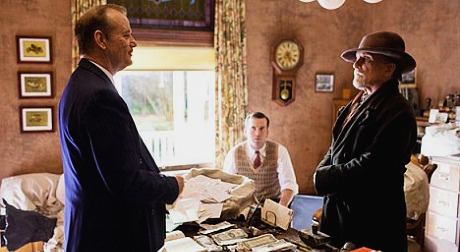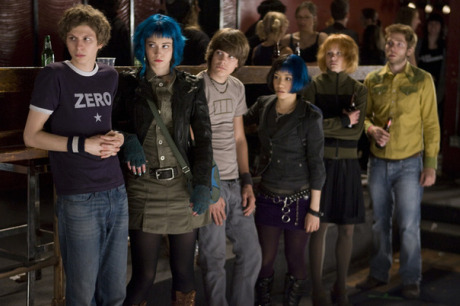Cinemablend‘s Katey Rich, a sharp reviewer but never a take-no-prisoners Christopher Hitchens type, has torn The Expendables a new one. She’s calling it “a bloated mess, a bunch of guys past their prime punching and kicking each other and pretending its for our benefit, when it’s really just one last self-congratulatory hurrah.
“The giant list of beefy male names is the major draw of The Expendables, but it’s also what kills it. A movie about Sylvester Stallone and Jason Statham‘s lead characters kicking ass and taking names in a foreign country might have gone somewhere, but the movie is utterly overstuffed, making room for a Dolph Lundgren vs. Jet Li fight scene, an entire subplot about Randy Couture‘s cauliflower ear, and worst of all, a 10-minute Mickey Rourke monologue in which he looks mournfully into a mirror, makes up an absurd story about his heartbreak on a previous mission, and silently cries.
“All of these will make for hilarious YouTube clips in the coming months, but they’re frustrating to watch in context as a movie with actual potential constantly kneecaps itself because the director and the cast had no idea when to give it a rest.
“Is The Expendables the manliest movie of the summer? Probably — it is ridiculously violent, fetishizes male strength without being too homoerotic, and treats women as pure, perfect beings who exist to be rescued. That kind of old-school machismo is missing from most modern action movies, and fans of old-school Stallone and Lundgren and company will likely flock to the Expendables with their bros, ready to watch the blood and guts fly. But if you were old enough to love Rambo III un-ironically the first time around, you’re way too old now to be fooled by the dull and desperate Expendables.”





